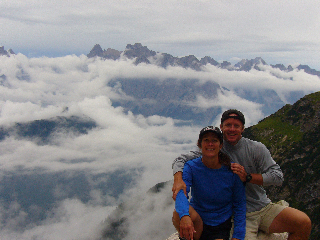What is Exploration?
By
Robert Twigger
It is quite simple to say who an explorer was in the past– he was someone who went where others had not been and brought back information. But in fact this is a modern definition, the scientific definition so to speak. In fact, if you look at explorers from Marco Polo to Richard Burton they were people who ‘tried to get places’. No more articulate than that really. They wanted to get to a new place by a new route, a shorter one usually. Their motives were usually economic. Or territorial- claiming land for their own country.
We forget all that now and teach in school that explorers were like modern scientists but in funny clothes. The fact that modern scientists, with aeroplanes and helicopters and skidoos and special clothing can go where any of these old explorers, who suffered such hardships, went, makes the scientists imagine they are cut from similar cloth. Not a bit of it.
The old explorers brought back news, information about things they found, rocks, plants, lost cities- but all this was by the by. They simply wanted to go somewhere no one had been before or get somewhere by a new route, a route no one else had used before. Or no one from their culture has used before.
Explorers are in fact the lineal descendants of those hunter gatherers who went in search of new game and plant rich areas. They were curious, flexible minded and courageous. Courageous because they were going outside the comfort zone of the tribe.
There is survival value in going outside the comfort zone- whether it is psychological or physical. This, is, in fact, what explorers do. They explore regions beyond the culture’s comfort zone. They may or may not bring back their discoveries in a form that is currently called ‘scientific’.
I used to find it odd that Buzz Aldrin shut in his space suit and tiny rocket capsule and Ranulph Fiennes making the first polar circumnavigation of the planet could both be labeled explorers. Yet they are: both have gone outside the comfort zone of the culture.
Maybe the journey involves an interior path too. Becoming initiated into a remote tribe counts as exploration- with both and internal and external journeying out of the usual comfort zone.
It is a slippery concept, exploration, especially in a world that many, wrongly, believe is fully explored. But what does ‘fully explored’ mean? That it has been photographed for Google earth? That someone has flown over it in a jet plane? That it was driven over in a jeep? We confuse map making with exploration. We have great maps of places that remain unexplored. My own view is that somewhere is not explored until a human being has looked at it closely and moved over it at walking pace. I have been in desert wadis where there are no vehicle tracks. The valley is unexplored- by any definiton- and I was the first person, since the previous wet period 5000 years ago – to visit such a place. That a car passed within two kilometres of this valley but didn’t see it and stop means nothing. They might just have well not have been there.
The other form exploration in the modern world takes, is to do an old route in a new way, or to link up several old routes. To do it using less gear and in a less complicated way counts as exploration- why? Because this is a more intimate way of experiencing the landscape. You find out new things about yourself. You necessarily leave the comfort zone. In the challenge, say, of towing a sledge solo to the North Pole in winter, you discover, because you are the first to summount this challenge, a whole range of new solutions. That is the discovery element of this exploration.
Discovery without challenge- for example buzzing around Antarctica on snowmobiles looking for dinosaur bones- though fun is more science than exploration. When there is no challenge, physical or psychological, the results obtained don’t ‘change’ the discoverer. He hasn’t ‘earned them’ in the way an explorer has. I think we are drowning in information these days we haven’t earned.
Captain Kirk, of course, summed it up rather well, “To boldly go where no man has gone before!”
You can read more about Robert at his hilarious and enjoyable blog at www. theexplorerschool.com!
